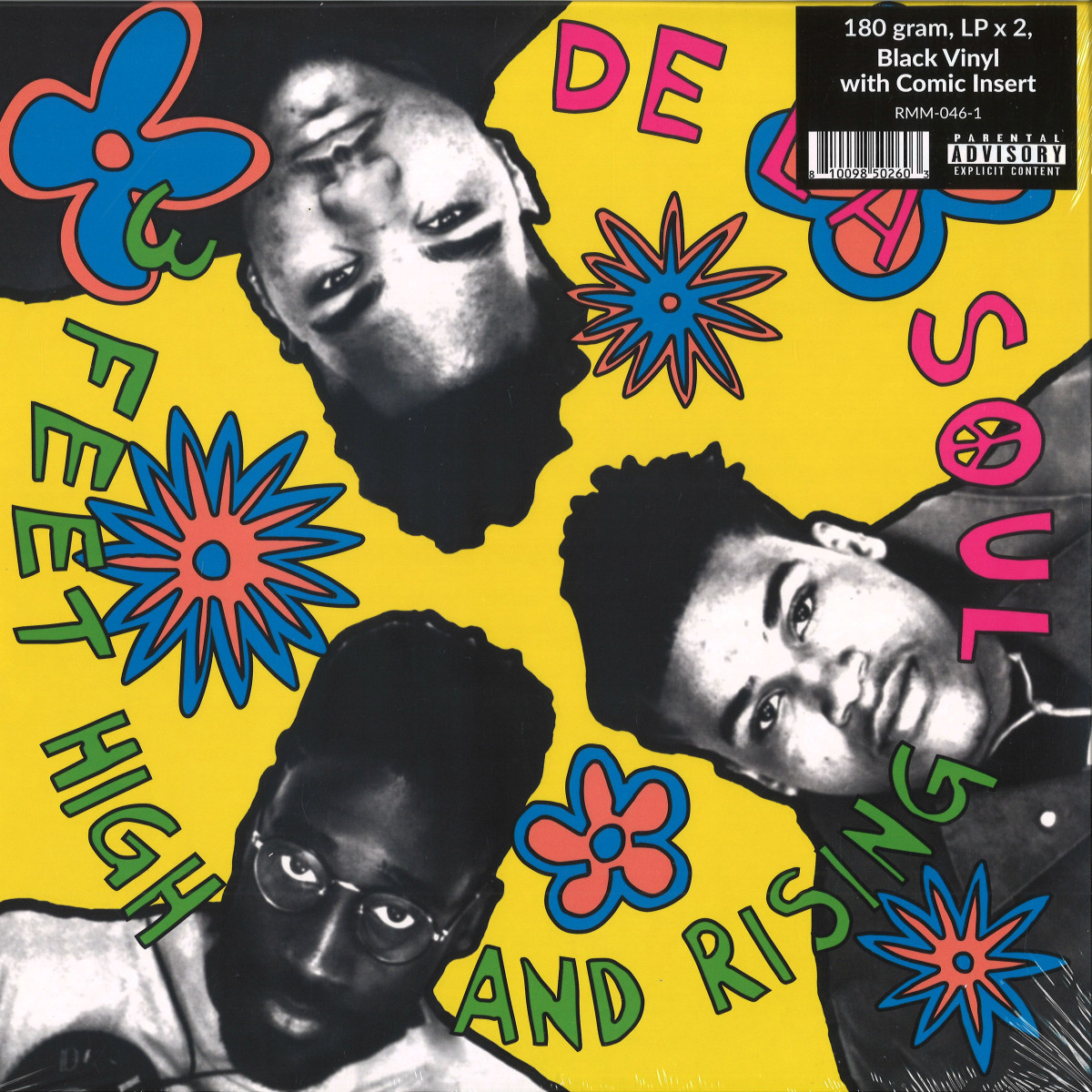The Immutable 10: The Definitive Greatest Hip-Hop Albums of All Time
A Half-Century of Sound, Distilled to Ten
Hip-Hop is the most transformative art form of the last 50 years. Born in the Bronx, the genre didn't just move across the country—it devoured and redefined American culture, from the raw boom-bap of the East Coast to the smooth G-Funk of the West. In that half-century, thousands of albums have dropped, each one staking a claim for immortality.
To create this list, we embraced the impossible challenge: cutting the entire history of the genre down to just ten definitive, culture-shifting masterpieces. This isn't just a collection of great records; it’s a ranking of the most foundational, influential, and commercially essential Hip-Hop albums ever released. We weighed lyrical innovation, pioneering soundscapes, and, crucially, the long-term impact that reshaped the music industry itself. As legendary producer Dr. Dre once said, "The album is a statement, not just a collection of songs." This list contains the ultimate statements.
You may have your own top ten, but this is the list that explains how Hip-Hop became the global empire it is today. We are counting down to the undisputed number one, starting with #10 and the lyrical miracle that is Nas's Illmatic. Enjoy.
10. De La Soul – 3 Feet High and Rising (1989)

This debut album was a cultural anomaly that launched the alternative Hip-Hop movement. Produced by the visionary Prince Paul, De La Soul's 3 Feet High and Rising was a kaleidoscope of eclectic, often obscure samples (from Steely Dan to Hall & Oates) that created a distinctively quirky, lighthearted, and psychedelic sound they dubbed the "D.A.I.S.Y. Age."
The whimsical and innovative tracklist included the infectious breakout hit "Me Myself and I," the clever call-and-response track "Eye Know," the playful single "The Magic Number," and the album's foundational skit and manifesto "Plug Tunin'."
Its success proved that Hip-Hop could thrive outside the narrow themes of gangsta rap and battle rap, paving the way for the jazz-rap and alternative sounds that would follow and establishing De La Soul as the foundational voice of the Native Tongues movement.
9. Wu-Tang Clan – Enter the Wu-Tang (36 Chambers) (1993)
The debut album of the Wu-Tang Clan was less a record and more a disruptive business model. By forming a collective of members—RZA, GZA, Ol' Dirty Bastard, Method Man, Raekwon, Ghostface Killah, Inspectah Deck, U-God, and Masta Killa—and distributing their solo artists through different labels, the Wu-Tang Clan mastered an ingenious form of leverage, securing multiple simultaneous deals and building their individual brands into a powerful, diversified franchise.
The music itself is raw, revolutionary, and instantly iconic. The essential tracklist included the gritty, foundational hit "C.R.E.A.M. (Cash Rules Everything Around Me)," the menacing introductory single "Protect Ya Neck," the dark, atmospheric storytelling of "Tearz," and the powerful final solo showcase "Method Man."
Enter the Wu-Tang (36 Chambers) (1993) remains a landmark album for both its revolutionary sound and its pioneering business strategy.
8. N.W.A. – Straight Outta Compton (1988)
A raw, uncompromising statement that turned localized protest into a global phenomenon. N.W.A.'s Straight Outta Compton (1988) not only popularized West Coast Gangsta Rap but also showcased the power of self-funded, independent distribution to bypass mainstream gatekeepers.
The groundbreaking tracklist immediately signaled this cultural shift, featuring the title track and defiant anthem "Straight Outta Compton," the fiercely political protest song "Fuck tha Police," the foundational narrative track "Gangsta Gangsta," and the influential dark comedy cut "Express Yourself." The key figures driving this were the members of N.W.A.: Dr. Dre, Ice Cube, Eazy-E, MC Ren, and DJ Yella. It was reality rap as journalism, sparking national controversy while demonstrating an almost terrifying ability to scale a local message worldwide.
7. Public Enemy – It Takes a Nation of Millions to Hold Us Back (1988)
Public Enemy’s It Takes a Nation of Millions to Hold Us Back (1988), driven by the commanding voice of Chuck D, the kinetic presence of Flavor Flav, the innovative turntablism of Terminator X, and the militant stage force of Professor Griff and the S1W, brought a sonic density and intellectual ambition unmatched by their peers. This album is a relentless, sample-heavy wall of sound paired with fiercely political and socially conscious lyrics. Its revolutionary approach to sampling and complex layering redefined the potential of rap production as an art form.
The album's seminal tracklist showcased this groundbreaking sound, featuring the urgent, anthemic single “Don’t Believe the Hype,” the politically charged protest song “Black Steel in the Hour of Chaos,” the blistering Chuck D-led manifesto “Rebel Without a Pause,” and the confrontational narrative “Bring the Noise.”
These tracks cemented the record’s legacy as a masterpiece of political hip-hop and a pivotal moment in music history.
6. The Notorious B.I.G. – Ready to Die (1994)
The Notorious B.I.G.'s Ready to Die (1994) is the quintessential album capturing the high-stakes narrative of ambition, failure, and ultimate success. Biggie’s unparalleled storytelling ability made this a commercial and critical powerhouse, effectively cementing New York’s return to rap prominence.
The album's dark, cinematic, and influential tracklist featured the celebratory breakout hit "Juicy," the dark, life-story epic "Gimme the Loot," the prophetic single "Big Poppa," and the iconic, narrative-driven "Warning."
These tracks showcased Biggie's versatility and his ability to connect deeply with listeners through raw, soul-baring lyricism.
5. Nas – Illmatic (1994)
A masterclass in precision and detail, Nas's Illmatic (1994) is a benchmark for lyrical complexity and technical production. At a concise 10 tracks, its focus and craftsmanship are an object lesson in maximizing impact through minimalist execution—a strategy as relevant in finance as it is in music.
The album's legendary tracklist includes the iconic opening track "N.Y. State of Mind," the profound narrative "Life's a Bitch," the vivid, street-focused "The World Is Yours," and the battle-ready anthem "Halftime."
These tracks cemented Illmatic's status, and its brevity and thematic depth ensured its lasting legacy as one of hip-hop's most critically acclaimed albums.
4. Tupac – Me Against the World (1995)
Tupac Shakur's Me Against the World was a powerful act of introspection and vulnerability recorded during a period of immense personal turmoil for the artist. This album is renowned for moving beyond the gangsta rap bravado to explore themes of hopelessness, mortality, and motherhood.
The essential tracklist highlighted this raw honesty, featuring the iconic tribute to his mother "Dear Mama," the defiant title track "Me Against the World," the intense and politically charged "So Many Tears," and the prophetic, mournful "If I Die 2Nite."
The album debuted at number one while Tupac was incarcerated, underscoring his unparalleled ability to connect deeply with a massive audience through raw, soul-baring lyricism.
3. Eminem – The Marshall Mathers LP (2000)
The Marshall Mathers LP wasn't just a sequel; it was a cultural explosion that saw Eminem wrestle with the consequences of his fame. Combining the dark humor of his debut with a palpable sense of anger, paranoia, and self-awareness, the album addressed the media, the critics, and the public backlash head-on.
The tracklist perfectly encapsulated this thematic intensity, featuring the chart-topping, self-referential single "The Real Slim Shady," the dark narrative masterpiece "Stan," the aggressive, industry-shaking "Kill You," and the deep, introspective title track "Marshall Mathers."
With these massive commercial hits and deep cuts, the record became an absolutely essential cultural artifact of the millennium's start, cementing Eminem as the single biggest artist in music and proving that politically incorrect, deeply personal rap could dominate the global marketplace.
2. Jay-Z – The Blueprint (2001)

Released at the height of his fame, The Blueprint is considered by many to be Jay-Z’s creative and commercial peak. It marked a definitive shift in mainstream Hip-Hop production, moving away from glossy, keyboard-driven beats to a soul-sample-heavy sound largely crafted by then-rising producers Kanye West and Just Blaze.
The album’s tracklist highlighted this sound and Jay-Z's lyrical maturity, featuring classics like the Kanye West-produced anthem "Izzo (H.O.V.A.)" and the raw diss track "Takeover", as well as the introspective fan favorite "Song Cry" and the powerful Eminem collaboration "Renegade".
The album’s success—which came despite its release coinciding with the September 11th attacks—solidified Jay-Z's status as the genre's "Ruler" and became a literal blueprint for the soulful, introspective, and commercially dominant sound of the early 2000s.
1. Dr. Dre – The Chronic (1992)
The Industry's New Gold Standard: The G-Funk Blueprint
This album is not just a masterpiece of sound; it's a monumental business and cultural reset. The Chronic codified the G-Funk sound—a polished, bass-heavy, and infectious style that utilized deep funk samples and live instrumentation, immediately making the raw, aggressive sounds of the past feel dated. This new aesthetic dominated the airwaves, crossing over from the streets to the suburbs and expanding the commercial reach of Hip-Hop exponentially.
Driving this phenomenon were iconic singles like the platinum-selling anthem "Nuthin' but a 'G' Thang" (featuring Snoop Dogg), the Grammy-winning cruising track "Let Me Ride," and the confrontational follow-up "Dre Day." But even deep cuts like the autobiographical "Lil' Ghetto Boy" became classics.
More profoundly, it was the foundation of Death Row Records, establishing Dr. Dre as a visionary producer, mogul, and talent scout who launched the careers of global superstars like Snoop Dogg. This album is the blueprint for producer-led empire-building in modern music and remains one of the most sampled and influential records ever made.
The Hip-Hop Economy: Beyond the Music A Billion-Dollar Blueprint for the Global Music Industry
If the ten albums above provide the creative blueprint, the Hip-Hop industry itself is the undeniable financial powerhouse that executed the plan. This is where the enduring relevance of these classics is fully realized.
Hip-Hop is no longer just a genre; it is a multi-billion-dollar global ecosystem and, in the U.S., it has been the most-consumed genre by total volume for years.
- Market Dominance: In the U.S. alone, R&B/Hip-Hop consistently accounts for over 30% of all on-demand music streams, the single largest share of the market.
- Massive Revenue: While exact figures are complex due to cross-genre collaborations, the direct and indirect influence of Hip-Hop drives revenue streams that dwarf previous eras. Global estimates suggest the genre and its culture generate tens of billions annually. The global streetwear market, which is inextricably linked to Hip-Hop fashion, was valued at over $347 billion in 2024 and continues to grow.
- The Mogul Class: The "players" in this industry are not just artists but true moguls. The careers of Dr. Dre (Beats by Dre's $3 billion sale to Apple) and Jay-Z (the first Hip-Hop billionaire, with ventures spanning liquor, art, and streaming) prove that the genre is a fast track to unprecedented wealth and corporate leadership.
The albums on this list—from N.W.A.'s raw independence to Dr. Dre’s refined G-Funk formula and Jay-Z’s soul-sampling genius—are the core intellectual property that launched this economic titan. They are the essential history of a movement that transformed a simple block party into the most influential force in modern culture.
As the late, great Hip-Hop journalist Greg Tate once said, “Hip-Hop is the most significant form of contemporary black popular culture... it’s the sound of young Black America wrestling with the terms of its own citizenship.”
Enjoy the debate, and know that every track, rhyme, and sample on this definitive list contributed to a revolution that is still dominating the world today.





















